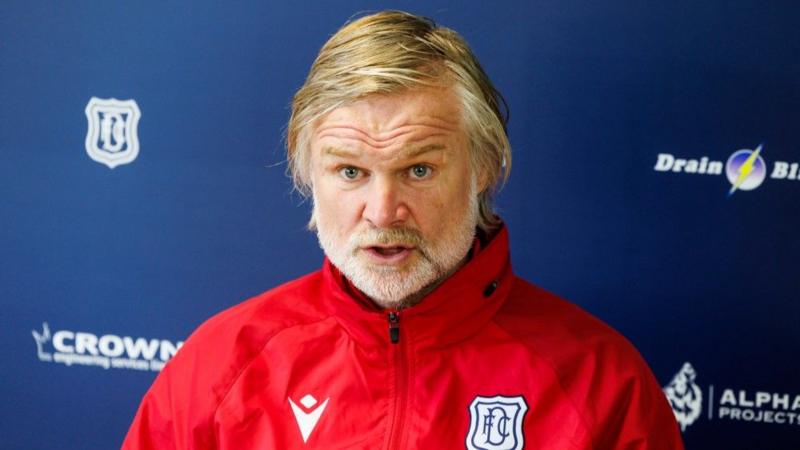Dundee Vows to Avoid Recruitment Chaos in Future Contests



As the dust settles on a frenetic summer transfer window, Dundee's head coach Steven Pressley has voiced a clear vision to steer the club into calmer and more strategic waters. Following what many in and around the club have described as a "scramble" for new signings during the offseason, Pressley is adamant about reshaping their approach.
The Tayside team found themselves in a desperate rush against time and other competitors as they looked to bolster their squad this summer. The situation was far from ideal, creating a whirlwind of activity that, while exciting, did not necessarily promise long-term stability for the club.
"The approach we had this summer wasn’t sustainable," Pressley explained. "We can't keep operating like this every transfer window; it's crucial we develop a more measured and forward-thinking strategy to player recruitment."
This viewpoint from Pressley comes as no surprise to those who follow the club closely. Dundee, historically a team with rich heritage and a passionate fanbase, has faced its fair share of ups and downs over recent years. Recurring managerial changes and inconsistent league performances have often disrupted the club's progress. These challenges underline the urgency for a more consistent and proactive recruitment strategy.
Pressley’s words mirror a growing realization across football management that long-term planning often trumps short-term fixes. This realignment in strategy is focused not only on strengthening the squad but also on creating a sustainable model that will benefit the club in the years to come.
"The key for us," Pressley continues, "is to identify potential signings earlier and establish a clear system for integrating them into our setup. We want players who not only have the talent but who also fit the ethos and the culture of Dundee."
Implementing such a strategic shift will not be an overnight fix. It needs a meticulous scouting network, nurtured relationships with other clubs, and a firm grip on the financial implications of each potential signing. For Dundee, the aim will be to avoid last-minute decisions driven by necessity rather than careful planning.
Soccer, like any sport, is unpredictable. Injuries, sudden departures, and unexpected drops in form can wreak havoc on even the best-laid plans. Therefore, maintaining flexibility within a long-term framework will be crucial for Dundee’s recruitment model moving forward.
Ambitious scouting that goes beyond local leagues and taps into lesser-known markets can also bring a competitive edge. It not only diversifies the talent pool but also provides a financial cushion by not always competing for high-profile—and high-cost—players. This method will allow Dundee to build a more balanced squad capable of competing across domestic and potentially European competitions.
For the fans, these changes promise an exciting future. A more cohesive team strategy means better performances on the pitch and, hopefully, higher league finishes. However, everyone involved will need to exhibit patience as these adjustments take effect. The fruits of such labors often take time to manifest, and knee-jerk reactions to minor setbacks could derail the progress.
Moreover, Pressley's proactive stance could very well ignite a broader transformation within the club. It’s not just about the players on the pitch but also about fostering a culture of excellence and pride—attributes that echo the rich history of Dundee FC.
In conclusion, while last summer’s frantic activity was a wakeup call, it also provided a catalyst for change. As Dundee and Pressley move toward a more deliberate and structured era, the focus will firmly be on sustainability and strategic growth. For this historic club on the banks of the Tay, the goal is clear: to build not just for the next game, but for the future of Dundee FC.